Travel Tuesdays: Don’t Lose Your Passport
There are a lot of things that you don’t want to lose when you’re traveling. Your wallet, phone, friends, tickets, and way are all pretty high up on the list. But more than just about anything else, you don’t want to lose your passport.
It goes without saying, really. Your passport is pretty much the one document that you need more than any other. Unfortunately, it’s also one of the most valuable possessions you have from a thief’s point of view. Passports can earn a pretty penny on the black market. Especially if it’s from the US, Canada, or a developed European nation. After all, world travel is a privilege that not everyone has. Although your passport has your face on it today, that can be changed tomorrow.
The value of a stolen passport
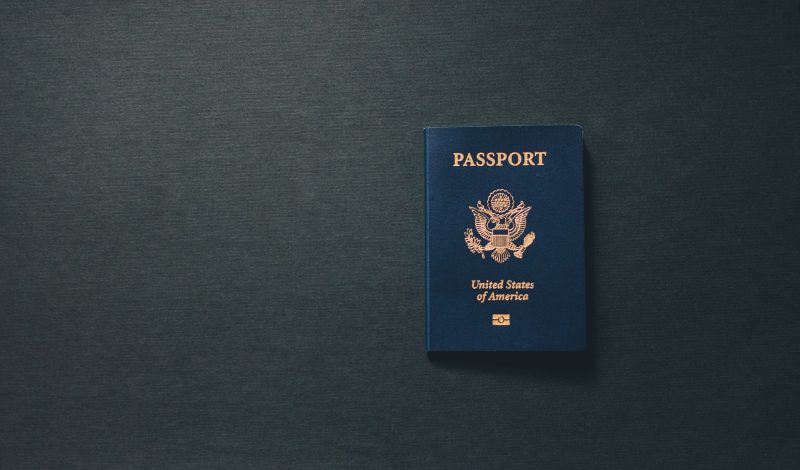
It’s not just those capable of altering passports that are interested in taking yours either. After all, very few people even know how to attempt such a forgery, let alone have the tools and technique to pull it off. However, thanks to the internet, the black market is stronger than ever these days. A forged passport can sell on the black market for anywhere between $1,000 and $4,000 US, depending on the quality and country of origin.
It’s not so hard to get your passport out of your purse and to a forger’s desk for anyone that knows how to use a couple of simple online tools. Craziest of all, it’s pretty easy to do so anonymously. So just about anyone that can steal a passport can make money off of it. They just have to sell it to someone who knows how to sell it to someone who knows what to do with it.
I was sixteen years old
I was traveling with my high school for a month around Guatemala and Belize. We had just spent a couple of days in the quaint little town of Flores, neatly positioned on a small island in the middle of a lake. It was a gorgeous way to relax before heading into the jungle of the northern Peten for a seven-day trek.
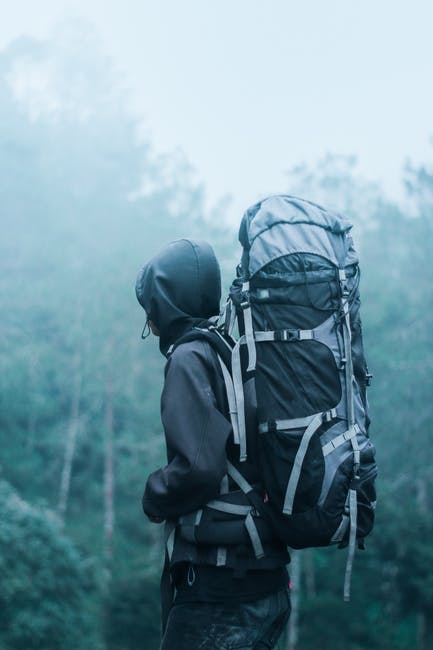
That morning, we packed our bags, laced up our boots, and piled into a micro bus headed north. It dropped us at the end of the last dirt road in a small village where we met with local guides, helped pack supplies onto horses, and set off into the muddy mangroves of the deep jungle. It wasn’t until day four that I reached into my backpack and realized that my little blue book wasn’t where it was supposed to be. Panic. I pulled my whole bag apart, trying desperately to look calm so no one would suspect how terribly I had erred.
If you’ll remember your teenage years, back, then it wasn’t easy to admit your mistakes. And this was no small mistake. This was orders of magnitude worse than pretty much anything else I could have done. Colossal doesn’t even begin to cover it. I knew exactly where my passport was. Even as I searched through my bag, I knew, because I remembered exactly what I had done with it.
I had lost my passport
You see, a lot of us develop the strange habit of hiding our prized possessions while we travel so that no one could steal something like our passport or money while we sleep. At least, I did. Thinking back, it was a completely ridiculous notion, and one that anyone reading should definitely reconsider if you do this too.
Every night, I would put my passport pouch under my pillow, so that no one could take it in the night. As if some professional ninja were going to sneak into a dorm room full of teenagers and tiptoe across to me and take it. A highly romanticized view of the dangers of travel is probably what inspired such a naive idea.
The most common forms of robbery while traveling
You see, the dangerous parts of travel aren’t like in the movies. You don’t get robbed by a masked man in the night. The most common form of robbery no matter where you are in the world is a pair of assailants on a motorcycle. They’ll pass you by once or twice to chart your course and wait for an opportunity. Then one will jump off the bike, flash a weapon, take your bag and be out of there. It takes less than thirty seconds usually. Worst of all, there’s really nothing the average traveler can do about it.
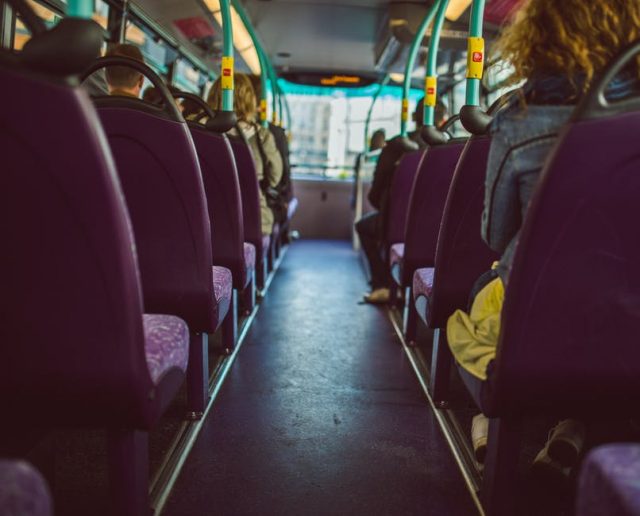
Now, in many parts of the world, you also have to worry about pick-pocketing. However, in Central America, the second most common form of theft is actually far simpler. A gringo forgets something like their passport somewhere stupid, like under their pillow. Yup, that was me.
When the cleaning lady who makes five dollars a day finds it, she’s looking at making a pretty penny by passing it along to any number of shady characters in town. If she were to give it back to you, all she’ll make is a really sincere “thank you” and maybe a small tip. It’s a pretty obvious choice if you have kids at home who are hungry.
Trying to recover a lost passport
So, when we walked out of the jungle three days later, we went straight back to our hotel. The manager checked the schedule, asked around. No luck. However, even to me at age sixteen it was pretty obvious.
The only person that could have found it is the cleaning lady who visited our room the next morning. To my teacher, an experienced traveler, and fluent Spanish speaker, it was even more obvious what was going on. The manager wasn’t going to oust one of his staff for such a thing, when he could just feign ignorance. He might have even been planning on getting a cut of the profits.
After over a half hour of beating our heads against the brick wall that was the front desk, we finally gave up. Defeated, we shouldered our packs and walked out the door. We were looking at a ten-hour shuttle back to the US Embassy in the capital city. We were not stoked, to say the least.
How to recover a stolen passport
But just as we walked out of the hostel, one of our local guides and drivers was walking in. My teacher had made friends with him on the long drive over to Flores, and he decided to take one last stab at the problem. He explained our situation and asked if buddy could do anything to help us. The man disappeared into the hostel with a reassuring look on his face, and we both stood on the curb praying to all the gods we could think of.
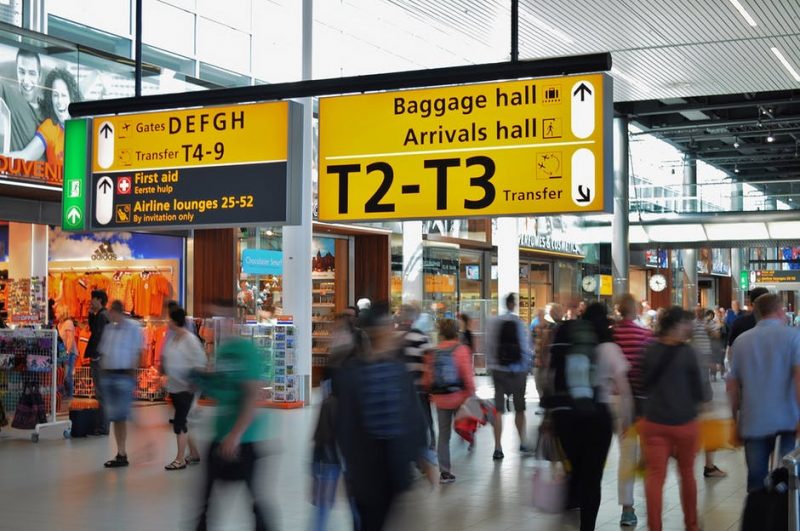
It took less than three minutes before he emerged with my passport in his hand and a grin on his face. Bacchus, my teacher, almost cried, slipped him a sizable tip, and gave him a big hug. I don’t know if he did it for the tip or if he did it for the hug. Probably both. Either way, that man saved us a lot of hassle, stress, and money. A lot of money.
Aside from the extra travel expenses and unexpected changes that arise when you have to get a passport replaced in a foreign country, just the act of replacing it costs a lot of money. Hundreds of dollars in most cases, plus any fees for expediting the process. After all, you usually don’t have time to wait around for a month or two while they make you a new one.
So, what did I learn?
Well, I’ve carried some lessons from that experience when traveling as an adult. First, and foremost, never put your passport, your wallet, or your other essentials in strange places where you might forget them. If you’re really paranoid that someone is going to steal your things at night, get a bag lock and lock your bag.
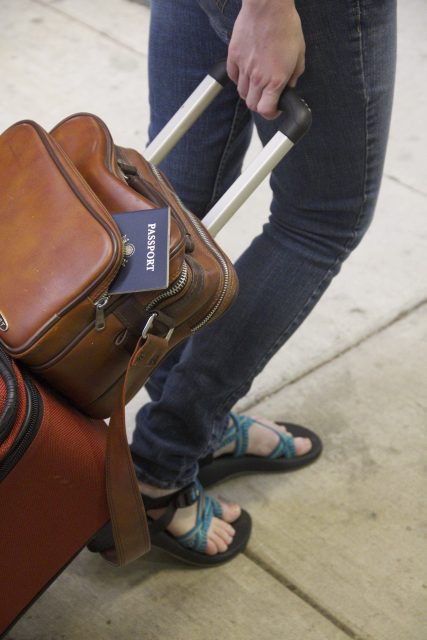
Even better, develop the habit to always do a personal sweep before leaving any area. Touch your wallet, your passport, your money and documents, your keys if you have them, and your cell phone. Every time you board or get off of a bus, taxi, train, whatever, do this check. Make sure you have all your bags, and all your things. This simple habit can save you hundreds, or even thousands of dollars and a whole lot of stress at some point down the line. Second lesson: good people can do bad things. The perfectly lovely establishment you’ve been staying in may still rob you. Your new friend at the bar might have other motives. That smiling face at the cafe might be eyeing your bag. Keep your head screwed on, and don’t give anyone the opportunity to take advantage of you. People are a lot more likely to steal from you if they’re given the easy opportunity.
The third, and most valuable lesson: make friends with everyone you meet. Always be kind to strangers, and build relationships along the way. You never know when you might need someone’s help, especially a local. In this instance, my teacher’s friendly conversation made an ally. Precisely the right ally. All that he had to do was walk into the hotel and say something to the effect of “keep the next one, but not this one” and he had my passport back. In other cases, making friends could get you some useful travel advice, a free place to stay, or an invite to a private party. There’s really no end to the ways that being kind can come back around to benefit you on the road.
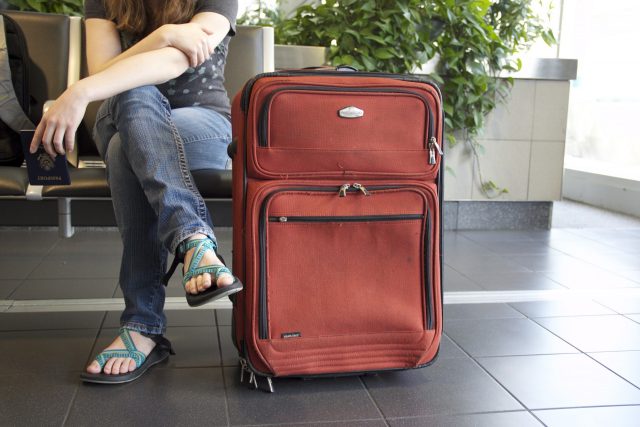
So, go out of your way, give more than you receive, and always give people your time and compassionate attention. It’s the most important piece of advice I can give to any traveler, and it’s not just useful on the road. It’s really how we should be living every day of our lives. Look out for others, and hopefully when the time comes, they’ll look out for you. After all, we’re all in this together. So, travel well, stay alert, and never leave your passport under your pillow.
If you have any comments then please drop us a message on our Outdoor Revival Facebook page
If you have a good story to tell or blog let us know about it on our FB page, we’re also happy for article or review submissions, we’d love to hear from you.
We live in a beautiful world, get out there and enjoy it. Outdoor Revival – Reconnecting us all with the Outdoors.





